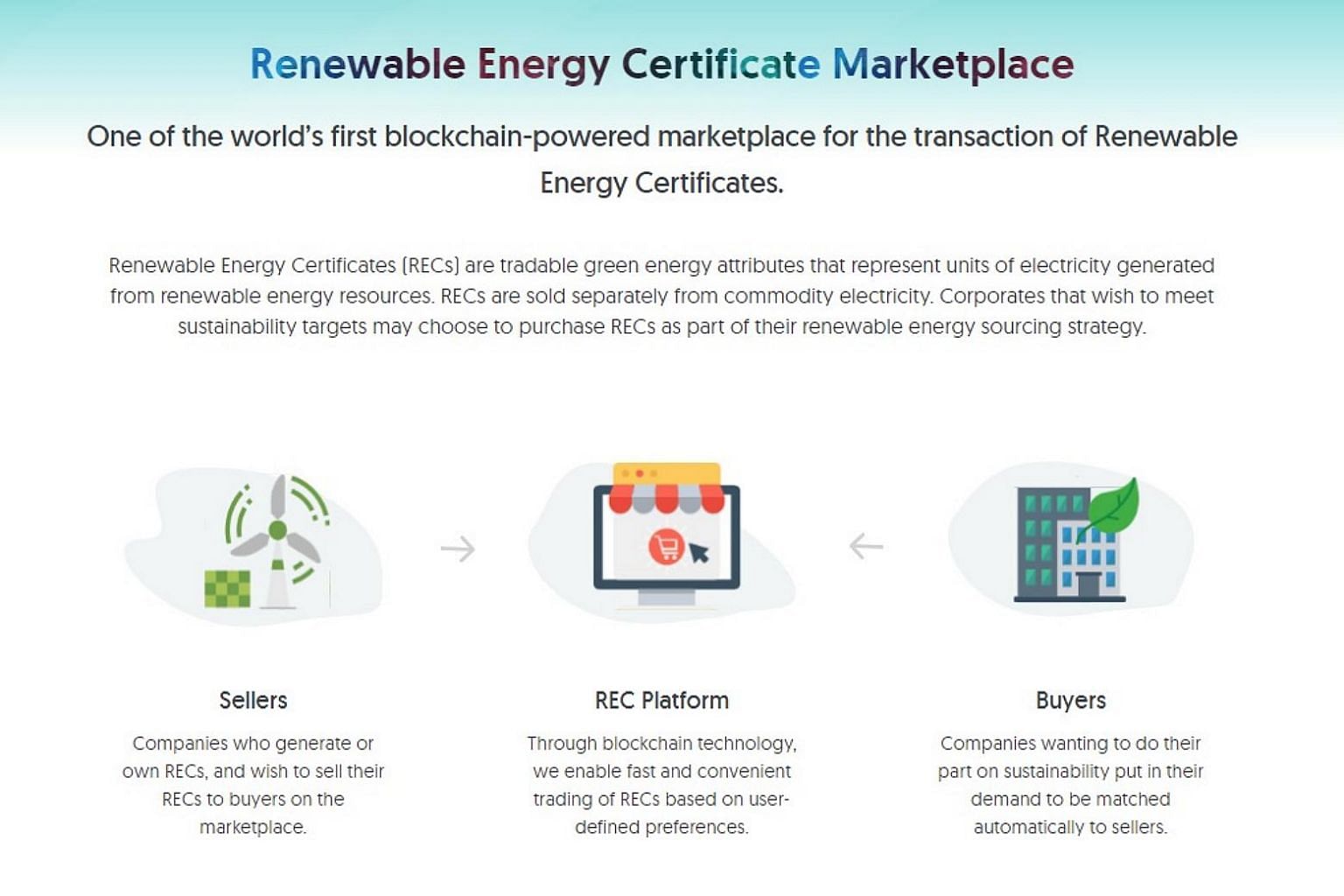Easier for small producers to sell 'green credits'
Sign up now: Get ST's newsletters delivered to your inbox

SP Group has launched a digital marketplace powered by blockchain technology, thus ensuring safe, transparent and fast transactions.
PHOTO: SP GROUP
It is now easier for small producers of solar energy in Singapore to sell "green credits" to buyers keen to offset their carbon footprint.
SP Group has launched a digital marketplace powered by blockchain technology to link up these buyers and sellers.
The power utilities firm believes this is the world's first blockchain-powered marketplace in renewable energy certificates (RECs), tradeable documents used to offset the use of non-clean energy.
The initiative was announced yesterday at the Asean Energy Business Forum at Marina Bay Sands.
For now, only small firms can access the marketplace, but it will open to households by the middle of next year.
SP Group chief digital officer Samuel Tan said: "We are thinking of products that will help our consumers choose sustainability."
He added: "Through blockchain technology, we enable companies to trade in renewable energy certificates conveniently, seamlessly and securely, helping them achieve greener business operations and meet their sustainability targets."

Currently, RECs are traded on an online registry in a manually intensive process that involves poring through spreadsheets and making sure the certificates have not already been bought.
It is also hard for small-scale buyers like individuals to find sellers and prices need to be negotiated between them.
With the blockchain marketplace, the selling and verification process will be automated, making it easier to connect buyers and sellers. This shortens a process that could stretch for months to mere minutes.
Any clean energy producer in the world that produces 1 megawatt-hour of electricity can be issued one REC.
The certificate not only serves as proof that the electricity is sustainable, but is also a document that can be sold. The goal of these certificates is to encourage the production of green energy.
SP Group's blockchain marketplace will allow the trading of RECs in 0.001 units, which is equal to 1 kilowatt hour (kWh) of electricity.
This will open up the buying and selling of RECs, nowadays mostly done by large companies, to much smaller players like households. As a gauge, a four-room Housing Board flat usually uses about 12kWh of electricity a day.
Local companies that have signed up to use the marketplace include DBS and property giant City Developments Limited (CDL).
A CDL spokesman said: "Participating in SP's blockchain-powered trading of RECs will help CDL to step up efforts to reduce carbon emissions more conveniently, seamlessly and securely."
The developer said it aims to be powered completely by renewable energy by 2050, and that buying RECs would be one of its strategies towards this goal.
One seller of these certificates here is chemical logistics company Katoen Natie Singapore, which will soon launch the Republic's largest single unit rooftop solar facility.
A spokesman said: "Katoen Natie will be embarking on a second phase of expansion for our solar energy plant here in Singapore. With the expansion, we are expecting excess capacity that can be traded on the REC platform."
The marketplace is accessible at www.spgroup.com.sg/rec
Jose Hong


